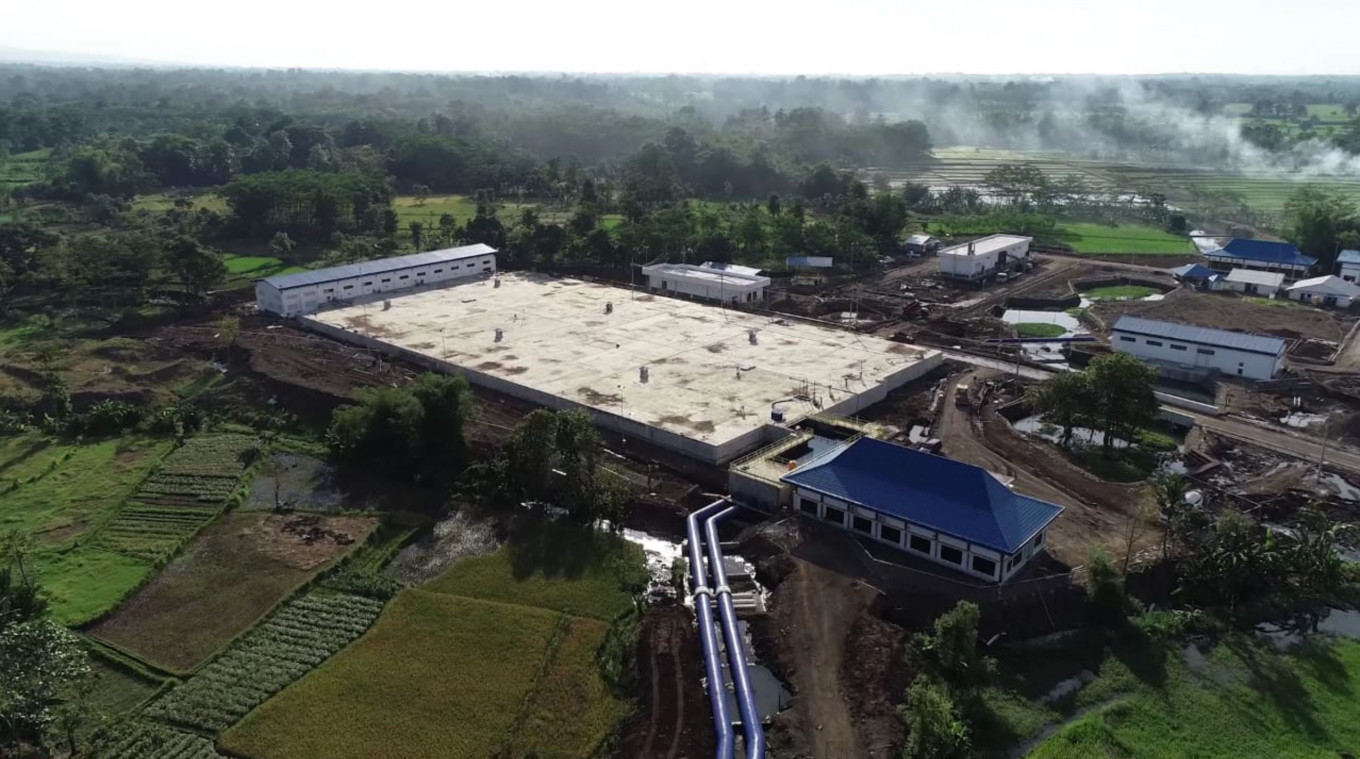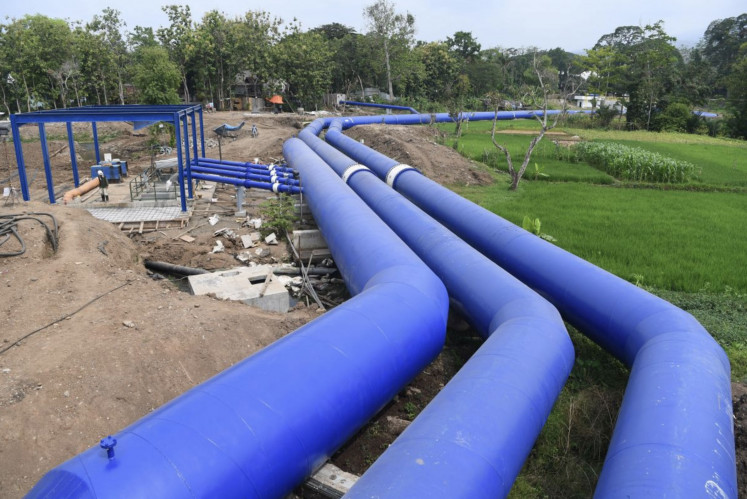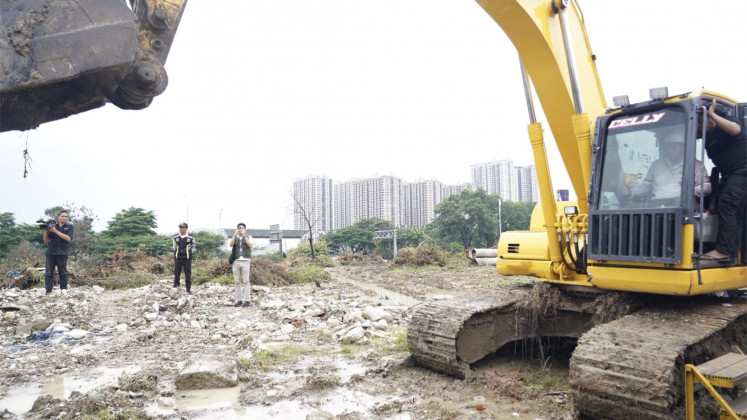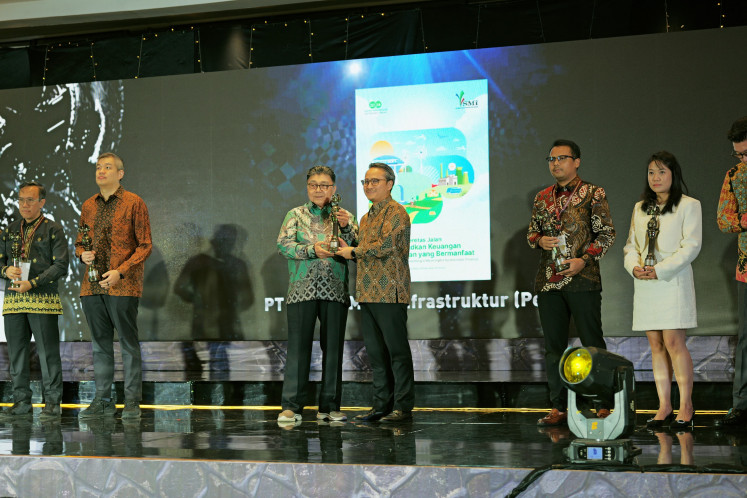Popular Reads
Top Results
Can't find what you're looking for?
View all search resultsPopular Reads
Top Results
Can't find what you're looking for?
View all search resultsCollaboration Between Public and Private Sector for Economic Growth
Change text size
Gift Premium Articles
to Anyone
I
nfrastructure development is an essential factor in accelerating economic growth, improving community welfare and ensuring the availability of public services, such as waste management. The expansion of infrastructure also fosters collaboration, as it requires support from both the government and private sector for the good of the people.
The government has introduced the Public Private Partnership (PPP) scheme to provide infrastructure to enable the government to collaborate with the private sector based on the principle of risk allocation. The implementation of this scheme is regulated under Presidential Regulation No. 38/2015.
The allocation of funds for infrastructure in the 2024 State Revenue and Expenditure Budget (APBN) is set at Rp 422.7 trillion, which is a 5.8 percent increase from the previous year. However, doubts have arisen that the budget will not be enough to ensure equitable infrastructure development throughout the archipelago. A solution that could be put forth is to use the public-private partnership (PPP)/Kerja Sama Pemerintah dengan Badan Usaha (KPBU) schemes.
A PPP is a scheme for providing and financing infrastructure that involves private participation. This scheme is based on a contract between the government, represented by ministers, heads of institutions, regional governments, state- and region-owned enterprises, and private parties, taking into account the principle of risk sharing between the parties.
In an effort to support the implementation of PPPs in Indonesia, the government through the Finance Ministry has provided various facilities and necessary government support, including the Project Development Facility (PDF) to prepare project documents that can be accepted by the market. Furthermore, there is the Viability Gap Fund (VGF) as an instruments to increase project bankability. Also, Ministry of Finance provides guarantees in order to increase project creditworthiness.
Another facility is the Availability Payment (AP) as part of the Government Payment scheme to the private sector in PPP. It comprises return on private investment originating from payments made by the government (in this case the Government Contracting Agency or ministers/heads of institutions/heads of regions) periodically to private parties based on the availability of infrastructure services in accordance with the quality or criteria specified, which has been determined in the PPP agreement previously.
All of these facilities/support are provided in an effort to ensure that more and more private funds can be used in the development of various infrastructure projects in Indonesia. All of these are vital to answer the main concerns of PPP stakeholders at each phase of the project development, mainly the investors and lenders.
"During the implementation of the PPPs, there have been many improvements. We spent quite a lot of time developing the ecosystem and the tools that come with it. So, as we have seen recently, we have various major initiatives, such as establishing a regulatory framework, increasing the capacity of PPP stakeholders and coordination between institutions, including the GCA, is also being carried out to initiate and increase project implementation efforts," said Brahmantio Isdijoso, director of government support and infrastructure financing management.
To ensure that the implementation of the PPP runs smoothly, the Finance Ministry has also established a Directorate for Government Support and Infrastructure Financing Management (Direktorat Pengelolaan Dukungan Pemerintah dan Pembiayaan Infrastruktur/PDPPI) under the Directorate General of Financing and Risk Management.
With the newly formed PDPPI, the unit will manage the provisions of the government facilities and support, as well as facilitating the GCA in preparing and carrying out PPP transactions. This support is a form of commitment by the government in its efforts to support and strengthen infrastructure development by bridging the advantages of the private sector expertises and the government.
The PPP scheme
In providing infrastructure through a PPP, cooperation between the GCA and private sectors can be carried out in several model structures depending on cooperation characteristics with the private sector. The difference can sometimes be attributed to the dissimilarity in funding and/or financing sources of each project.
A user charge or user fees payment scheme is a scheme in a PPP project where the project receives funding from the public as a payment of services provided by business entities. Infrastructure projects that use this scheme are usually those that naturally generate income.
On the other hand, the AP scheme is one that implements a return on private investment based on payments made by the government periodically to the business entity providing the investment. Infrastructure development using the AP scheme is likely more interesting for the private sector because the return on investment is considerably less risky.
PPP case study in waste management
An example of the collaboration between the government and the private sector can be seen in the waste-management sector. In 2020, the percentage of waste that was managed well in Indonesia amounted to 49.18 percent, while the rest was still disposed of directly into the environment and handled by disposal in landfills using an open-dumping system.
The increasing problem of waste management is attributed to the population growth in urban areas, compared with rural parts of the country. The problem is made worse as communication between regional administrations and the DPRDs regarding waste-management projects is minimal so that the political risk of such projects is relatively high.
For this reason, in accordance with the Development Agenda in the 2020-2040 RPJM, the waste-management sector needs to be managed by strengthening infrastructure to support economic development and basic services where waste management is placed as part of basic sanitation access services. With the increase in the number of city residents and the volume of landfills, as well as the mandate of the 2020-2024 RPJM, good management facility services need to be provided immediately.
The success is evident in the implementation of waste-management technology in Piyungan Final Disposal Site (TPA) in Yogyakarta, which was initiated through a PPP. The TPA is an infrastructure project in the waste sector that aims to overcome the waste problem in Yogyakarta city and Sleman and Bantul regencies.
“The Yogyakarta regional government wants the waste in Yogyakarta to be destroyed with the technology offered by investors," said Beny Suharsono, Yogyakarta regional secretary. He revealed that five investors have offered processing technology at the Piyungan landfill.
Through this PPP scheme, investors will manage the processing technology so that the Yogyakarta administration will purchase derivative products from processed waste. The project is still at the market-sounding stage, and is expected to stay there until the end of 2023 before it can move on to the next stage.
Meanwhile, in early 2025, the project is targeted to be able to process waste from Yogyakarta city and Sleman and Bantul regencies. It is hoped that the Piyungan TPA will phase out the sanitary landfill method, a waste-management system involving the throwing and piling of waste in a sunken location.
Source: The Finance Ministry












